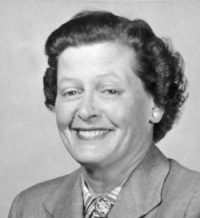Legaspi, Albay
We have just finished an excellent dinner and are looking forward hopefully to a cool night in this modern little hotel in Legaspi, a southern Luzon port. Across the street, along the bay shore, are numerous warehouses for copra and hemp. About fifteen kilometers to the right of the town is our reason for being here: Mayon volcano, whose peak, now peacefully hidden by clouds, spat lava, flames and smoke just thirteen months ago.
We left home very early this morning and motored to Manila where we left the car and boarded the Bicol Express. This train carries a most luxurious air conditioned car, spaciously accomodated to hold thirty passengers, but as there were not more than nine aboard, Ham and I had a section to ourselves. sitting in cool, bugless comfort we watched the familiar Philippine scenes. As we drew into stations, I could speculate, in a pleasantly detached manner, on the contents of the baskets which the women carried on their heads. Very dead fish alive with flies; bananas, mangoes, santols, chicos and other fruits and vegetables I didn’t recognize– all a little too ripe for American nostrils.
The further south we came the more fertile the land appeared. The long, tough cogan [cogon] grass and bamboo thickets were replaced by rice paddies and forests of cocoanut palms. At the town of Gumaca, we observed, with some surprise, quite sizable trees growing out of the blue waters of the Pacific. We couldn’t find out what variety they were, and no one but ourselves seemed to think them strange.
About three hours out of Manila our modern car developed a hot box. At every station, men ran out with tins of water which they threw on the flaming oily waste that was packed into the medal box holding the wheel bushing. Then, with half the town’s population staring open-mouthed, one man would slosh in more oil, until at the little copra exporting town of Hondugua a master-mind hauled out the bushing, hammered off a melted hunk and returned the offending object to its hot setting. The good effect was apparently very temporary, for little boys astride carabaos and rice planters knee-deep in their watery paddies continued to wave wildly at the wheel as we puffed past.
There are two other guests at the hotel besides ourselves. One is a Mr. Harrison, agent for International Harvester; the other is a young German mining engineer from the little island of Rapu-Rapu, a few miles south-east of Legaspi. Mr. Harrison was talking in a tone that obviously included us: the few Americans living in the out-of-the way places all apparently abhor the idea of fellow members of the white race remaining strangers to one another. (He was saying):
“I got there at ten to catch the eleven o’clock launch, and the damn thing had left at eight, just because it looked a little stormy, by God! Well, Colonel Stevens down in Mindanao says the lowest level a man can reach in the Philippines is to miss an Inter-island boat!”
Tomorrow morning Mr. Harrison will again attempt to catch that elusive ferry and has asked us to accompany him as far as Pilar, some fifty kilometers to the south. As he will be away for several days, he has very kindly offered us his car and driver for the duration of our stay.
Powered By EmbedPress
